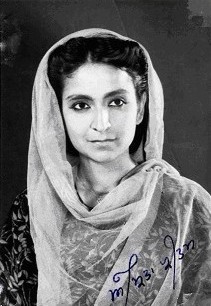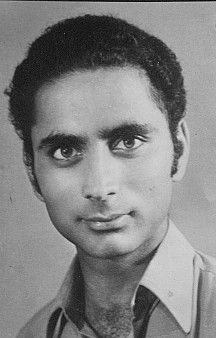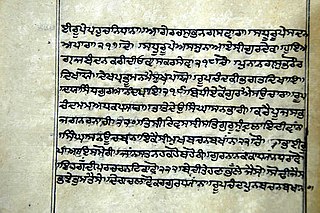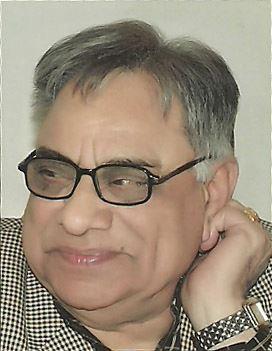
Amrita Pritam was an Indian novelist, essayist and poet, who wrote in Punjabi and Hindi. A prominent figure in Punjabi literature, she is the recipient of the 1956 Sahitya Akademi Award. Her body of work comprised over 100 books of poetry, fiction, biographies, essays, a collection of Punjabi folk songs and an autobiography that were all translated into several Indian and foreign languages.

Pash was the pen name of Avtar Singh Sandhu, one of the major poets in the Punjabi literature of the 1970s. He was killed by extremists on 23 March 1988. His strongly left-wing views were reflected in his poetry.

Kartar Singh Duggal was an Indian writer who wrote in Punjabi, Urdu, Hindi, and English. His works include short stories, novels, dramas and plays. His works have been translated into Indian and foreign languages. He has served as director of the All India Radio.

Jaswant Singh Kanwal was an Indian novelist, short story writer and essayist of the Punjabi language. He was born in the village of Dhudike, Moga District, Punjab, India. As a young teenager he left school and went to Malaya. It was there that he first got interested in literature. He returned to Dhudike after a few years and has lived there ever since. He was awarded the Punjabi Sahit Shiromani Award in the year 2007.
Baldev Raj Gupta is an Indian academic in the field of linguistics, and a Punjabi and Hindi writer.

The Sahitya Akademi Award is a literary honour in India, which the Sahitya Akademi, India's National Academy of Letters, annually confers on writers of the most outstanding books of literary merit published in any of the 22 languages of the 8th Schedule to the Indian constitution as well as in English and Rajasthani language.

Suraj Prakash, also called Gurpartāp Sūraj Granth, is a popular and monumental hagiographic text about Sikh Gurus written by Kavi Santokh Singh (1787–1843) and published in 1843 CE. It consists of life legends performed by Sikh Gurus and historic Sikhs such as Baba Banda Bahadur in 51,820 verses. Most modern writing on the Sikh Gurus finds its basis from this text.

Giani Gurdit Singh was born in Mithewal village in the state of Punjab, India. He was considered one of the greatest contemporary writers in Punjabi, and his book Mera Pind is regarded as a classic. It is now in its 14th edition and has been in print continuously since 1961. He was also a pioneering journalist, the Owner-Editor of Parkash 1947–1978. He was also the editor of Singh Sabha Patrika, a monthly magazine of Sikh history and divinity. Giani Gurdit Singh graduated as "Giani" from Punjab University, Lahore in 1945, and he specialised in literature, divinity, history and folklore. He was a member of the Punjab Legislative Council from 1956 to 1962. He contributed to the debates at that time and in the creation of Punjabi University, Patiala and the recognition of Takht Sri Damdama Sahib, Talwandi Sabo, as the 5th Takht of the Sikhs. He was General Secretary of the Singh Sabha Shatabadi Committee, Amritsar, renamed Kendriya Sri Guru Singh Sabha. As the editor of the magazine Singh Sabha Patrika, he focused on issues of importance to the Sikhs. He also established two Guru Granth Vidya Kendras, one in Chandigarh and another in Mehrauli, Delhi.

Krishna Sobti was an Indian Hindi-language fiction writer and essayist. She won the Sahitya Akademi Award in 1980 for her novel Zindaginama and in 1996, was awarded the Sahitya Akademi Fellowship, the highest award of the Akademi. In 2017, she received the Jnanpith Award for her contribution to Indian literature.

Gulzar Singh Sandhu is a prominent Punjabi language writer. He won the prestigious Sahitya Akademi Award, given by the Sahitya Akademi, India's National Academy of Letters, for his short story collection, Amar Katha in 1982. Among other awards he was also the recipient of International Association of Authors, Playwrights and Artists of Canada in 1992 and Shiromani Punjabi Sahityakar Puraskar from the Education Department of Punjab in 2001.
Ajit Singh Saini (1922–2007) was an eminent and critically acclaimed writer of Punjab (India). He was associated with the Punjabi daily "Ajit" as its managing editor and columnist. He is remembered in Punjab both as a freedom-fighter and an acclaimed writer and columnist. He was an officer in Indian National Army (INA) and a close lieutenant of Subhas Chandra Bose. Saini worked with the wire service of INA and Arzi Hukumat-e-Azad Hind or Provisional Government of Free India, more simply, Indian government in exile.

Dalip Kaur Tiwana was one of the foremost novelists and short-story writers of contemporary Punjabi literature. She won awards, both regional and national, and was a widely translated author. She retired as Professor of Punjabi, and Dean, from Punjabi University, Patiala. She is widely credited as a tour-de-force in the creation of the contemporary literature in the Punjabi language.
Ram Sarup Ankhi was an Indian writer, poet, and novelist who wrote in Punjabi. He started as a poet but ended up as a fiction writer. He was awarded the Sahitya Akademi Award by the Sahitya Akademi, India's National Academy of Letters in 1987 for his novel Kothe Kharak Singh.
Santokh Singh Dhir was an Indian writer and poet who wrote in Punjabi. He was known for his stories Koee Ik Sawaar, Sanjhi Kandh and Saver Hon Tak. He was awarded the Sahitya Akademi Award for his story collection Pakhi (1991) in 1996 by the Government of India. He died on 8 February 2010.
Waryam Singh Sandhu is an Indian author of short stories. In 2000, he was awarded the Sahitya Akademi Award for his short story collection Chauthi koot. Although he writes in Punjabi, his works have been translated into Hindi, Bengali, Urdu and English.

Kewal Dheer is an Indian writer and author.
Sheila Bhatia (1916-2008) was an Indian poet, playwright, theatre personality and the founder of the Delhi Art Theatre, a forum based in Delhi for the promotion of Indian art forms. She is credited with originating Punjabi opera, an Indian form of dance drama incorporating operatic movements. She was honoured by the Government of India in 1971 with Padma Shri, the fourth highest Indian civilian award. A decade later, she received the Sangeet Natak Akademi Award for theatre direction in 1982 followed by Kalidas Samman in 1997.
Rawail Singh is Professor of Punjab working at Delhi University.

Sukhwinder Amrit is a Punjabi poet. She is the reciepant of Shromani Punjabi Kavi Purskar-2008 presented by Punjab Language department ,Government of Punjab.

Balbir Madhopuri is a Punjabi language writer, poet and translator. He is best known for his autobiography, Chhangiya Rukh. His writings are primarily focused on the issues related to the oppressed and depressed classes, especially Dalits. In 2021, He has received The Dhahan Prize for Punjabi Literature for his novel Mitti Bol Payi.













